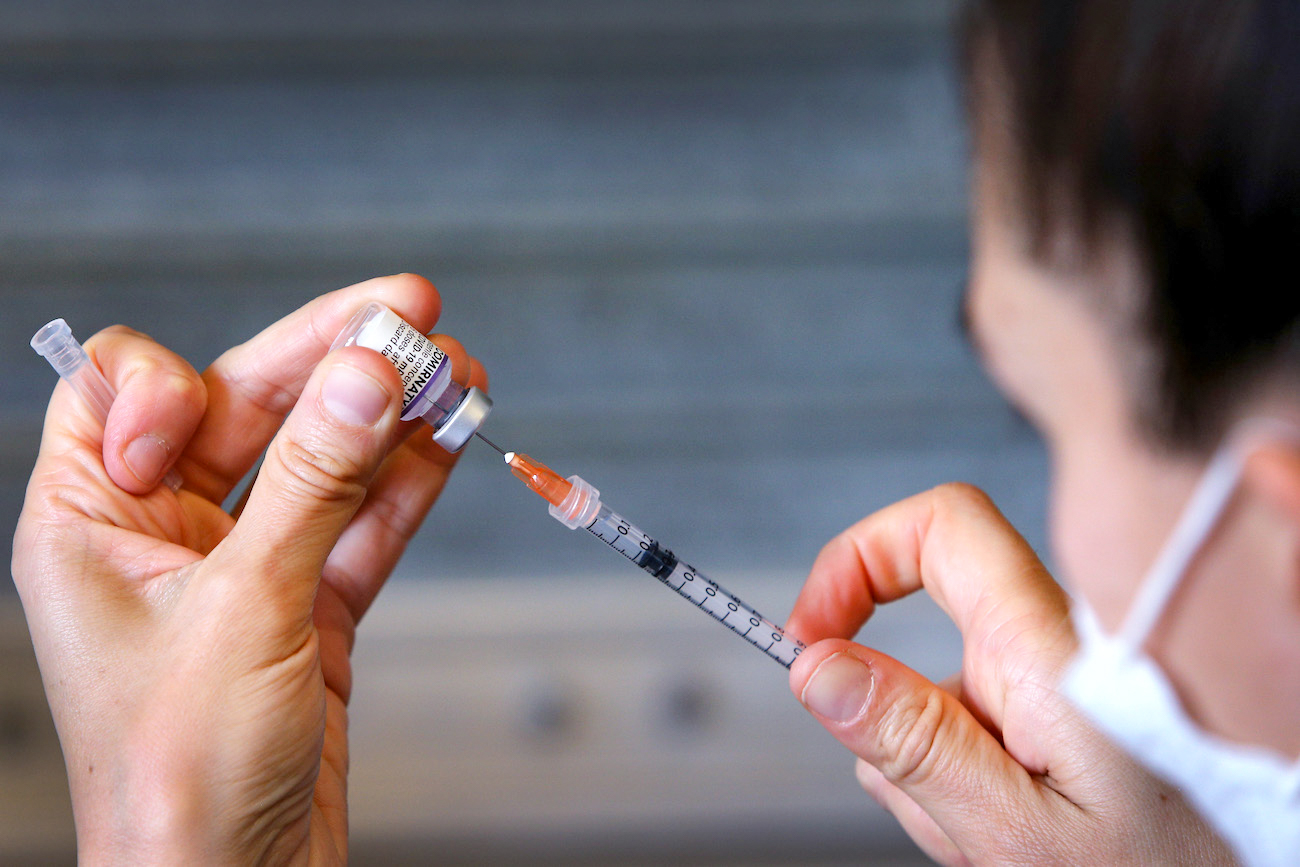People More Likely to Suffer Vertigo, Tinnitus Soon After COVID-19 Vaccination: Study
Thousands of vaccinated people presented to doctors with an audiovestibular problem within 42 days of vaccination.
People were more likely to present with tinnitus and vertigo shortly after COVID-19 vaccination, Australian researchers reported in a new study.
Some 65,468 visits to general practices with an audiovestibular problem were recorded in a database called POLAR that collects data from the practices, the researchers found. The visits, in Victoria and New South Wales, were more likely to happen within 42 days of a COVID-19 shot.
Another 678 problems relating to the ear were reported within 42 days of a vaccine dose to the Surveillance of Adverse Events Following Vaccination In the Community, or SAEFVIC, a surveillance system in Victoria, in the timeframe studied.
That timeframe was January 2021 to March 2023.
A safety signal, or sign the vaccines may cause the problems, was established for tinnitus and vertigo, according to the new paper.
Researchers found that there was an increase in general practice visits with vertigo following a Moderna or Pfizer vaccination, and visits with tinnitus after a Moderna, Pfizer, or AstraZeneca vaccine. At the same time, there was no increase in visits with hearing loss.
The Pfizer and Moderna vaccines use modified messenger RNA (mRNA) technology while AstraZeneca’s vaccine uses an adenovirus.
A separate analysis of SAEFVIC found that reports of audiovestibular problems were more common after AstraZeneca vaccination than after a Moderna or Pfizer shot. That analysis excluded, owing to what researchers said were insufficient records, reports of problems after certain kinds of COVID-19 vaccines, including one version of Pfizer’s vaccine and Novavax’s vaccine.
“This is the first study that demonstrates an increase in audiovestibular presentations following COVID-19 vaccination, in particular, vertigo and tinnitus. Healthcare providers and vaccinees should be alert to potential audiovestibular complaints after COVID-19 vaccination,” Dr. Aishwarya Shetty, with the Centre for Health Analytics at The Melbourne Children’s Campus, and her co-authors wrote.
Methods
Tinnitus, or ringing in the head, has particularly been previously linked in case reports and patient accounts with COVID-19 vaccination.
To explore the possible relationship, the Australian group took the primary care data and conducted what’s called a self-controlled case series. In such an analysis, comparisons are made using the same people but different periods of time. In this study, the method involved examining visits for audiovestibular conditions and separating out visits that happened within 42 days of vaccination. Any visits in the time periods before and after that window were used as comparison.
For all audiovestibular conditions, including hearing loss, people were more likely to present within 42 days of vaccination than during the other time periods. When analyzing by specific condition, the increased risk of vertigo after mRNA vaccination and the increased risk of tinnitus after all vaccines was statistically significant while the increased risk of hearing loss was not.
The researchers also calculated the rates of reports of the conditions made to SAEFVIC per 100,000 doses. They found people were about two times more likely to suffer from most hearing problems after AstraZeneca vaccination than after Pfizer or Moderna vaccination.
The rates of reported audiovestibular conditions were 9.7 per 100,000 AstraZeneca doses and 5 per 100,000 mRNA shots. The rates of reported vertigo cases were 5.9 per 100,000 AstraZeneca doses and 3.1 per 100,000 mRNA doses, while the rates of reported cases of tinnitus were 3.2 per 100,000 AstraZeneca doses and 1.7 per 100,000 mRNA doses.
One theory to explain the difference is that older people, who face a greater risk of vertigo, predominantly received the AstraZeneca vaccine, the researchers said.
Limitations of the paper included not capturing people who reported to health care settings outside of general practices.
Increased Risk Versus Unvaccinated
In another new study released on medRxiv, South Korean researchers reported finding vaccinated people were at increased risk of tinnitus and ear disease when compared to unvaccinated people.
Taking data from a national health care database, the researchers said vaccinated people three months after vaccination had increased rates of tinnitus, inner ear disease, middle ear disease, and other ear disease.
The researchers said the results showed COVID-19 vaccination “significantly increased” the risks of what they described as non-fatal adverse events, such as tinnitus.
The group found that females were more likely to suffer from tinnitus and ear disease than males, and that people who received a non-mRNA vaccine were more likely to suffer from tinnitus and inner ear disease than those who received an mRNA shot. On the other hand, the risk was about the same across vaccine types for middle ear disease and higher for mRNA recipients for other ear disease.
The researchers reported no conflicts of interest and no funding.
This article has been archived for your research. The original version from Epoch Times can be found here.






